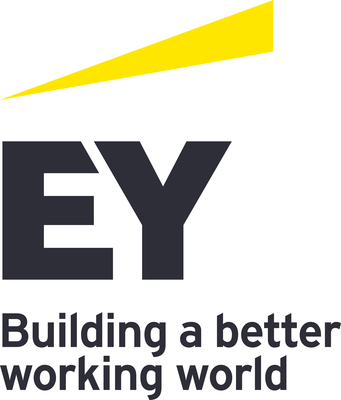TMCnet News
Declining consumer confidence in the US energy system highlights need for action - EY research
NEW YORK, Feb. 15, 2024 /PRNewswire/ -- The EY Energy Consumer Confidence Index (ECCI) reveals an 8-point plunge in consumer confidence toward the US energy system, tumbling from 64.8 in 2022 down to 56.9 today. Most Americans believe they are doing everything they can to be sustainable (68%) and that energy providers should take the lead in shifting to cleaner energy (65%), followed by local government (42%), and oil and gas companies (38%). As part of the global Energy transition consumer insights report, Ernst & Young LLP (EY) surveyed 3,000 US consumers on their sentiment of the energy market, the transition toward lower-carbon and renewable energies, and their optimism concerning its progress. The EY research concludes that consumers must have affordable, accessible and appealing energy options to inspire action and confidence in their energy future. "US consumers are concerned about the costs and accessibility of clean energy options, underscoring the need for energy providers, regulators and policymakers to work together to progress carbon ambitions," said Trey Thornton, EY Americas Power & Utilities Leader. "Broad consumer action is the biggest driver for demand of lower-carbon and renewable energies, yet our research concludes not enough is being done to spur greater consumeradoption of these products." Affordability concerns overshadow sustainable action Affordability is considered the most important factor by 75% of Americans when it comes to their energy experience. Most US consumers (82%) cite energy as a budgeted expense, and a majority (65%) are unable to afford a 10% increase in energy costs. Despite its importance, only 30% of Americans feel confident their energy will remain affordable, with 70% of US consumers unwilling to invest more money or time in making sustainable energy choices. Complicating the effort to reduce cost and increase sustainability, many US consumers (40%) don't know what energy-related actions they should take and investments they should make to be more sustainable. Only 30% of US consumers feel confident they can access clean energy options. Renters and low-income households are two to three times less likely to invest in new energy solutions. Hence, only 1 in 4 Americans are confident the energy transition is fair and equitable, with just 31% feeling confident that their energy provider is creating value for them and the community. Limited interest in new energy products and services Over the next three years, only a third of US consumers will consider a purchase of new energy products or services —such as energy-efficient home appliances, rooftop solar panels, battery storage, or an electric vehicle. Those that remain are waiting for lower costs, better reliability and easier experiences. According to the research, the electrification of gas appliances is a tough sell for Americans. Of those who currently have gas appliances, less than 20% are interested in switching to electric. Convenience over control: distrust of technology Many consumers do not trust any third party (39%) or technology, such as artificial intelligence (AI) (61%), to control their energy devices, even if it saves them money. However, if energy prices are more volatile, 84% of consumers will take action to manage energy use, but they want notifications and personal control. Interestingly, a majority of US consumers (85%) want the option to opt out of their data being used by their energy provider to train AI tools. However, consumers are comfortable with AI being part of their energy experience to offer personalize advice (62%) and help them learn about energy solutions (60%), indicating a preference for convenience. About the research About EY Enabled by data and technology, diverse EY teams in over 150 countries provide trust through assurance and help clients grow, transform and operate. Working across assurance, consulting, law, strategy, tax and transactions, EY teams ask better questions to find new answers for the complex issues facing our world today. EY refers to the global organization, and may refer to one or more of the member firms of Ernst & Young Global Limited, each of which is a separate legal entity. Ernst & Young Global Limited, a UK company limited by guarantee, does not provide services to clients. Information about how EY collects and uses personal data and a description of the rights individuals have under data protection legislation are available via ey.com/privacy. EY member firms do not practice law where prohibited by local laws. For more information about our organization, please visit ey.com. Ernst & Young LLP is a client-serving member firm of Ernst & Young Global Limited operating in the US.
SOURCE EY 
|

